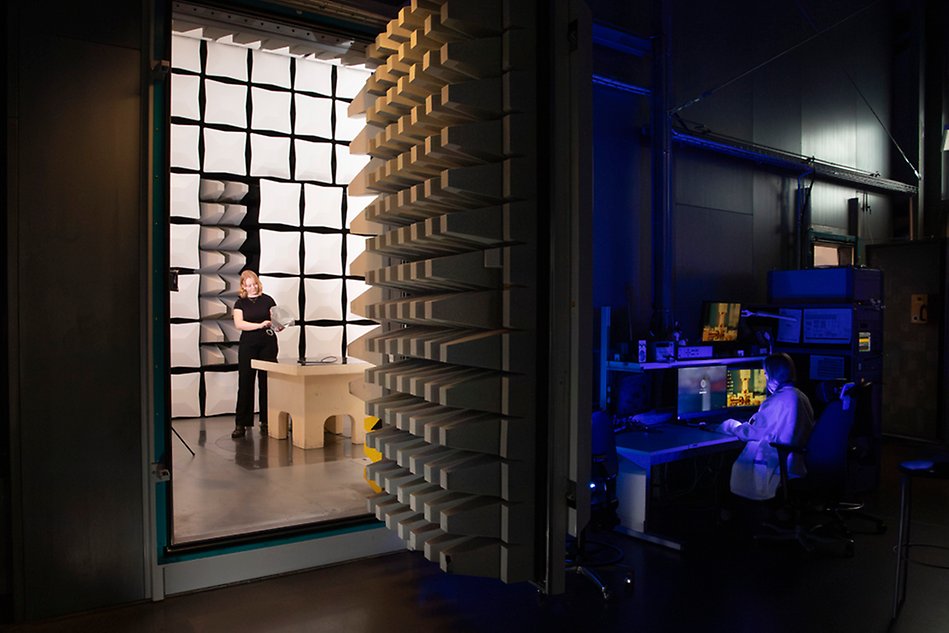Refractor
West Sweden’s network for smart electronics. We strengthen small and medium sized companies in the electronics industry, with knowledge, networks and resources for future innovations.
Background and purpose
Electronics are now an integral part of almost all the products we use. For Swedish companies in the electronics sector, this presents great opportunities, but also challenges – not least meeting the complex requirements for CE marking, EMC testing and other product certification. For many small and medium-sized enterprises (SMEs), these requirements can be a high threshold for entering the market.
Refractor is a three-year collaborative project (2025–2028) driven by Halmstad University and HH Innovation with financial support from the European Regional Development Fund and Region Halland. The goal is to give SME in the electronics sector access to the knowledge, contacts and resources needed to develop, test and launch products in a sustainable and competitive way
Why Refractor is needed
- Complex regulations – CE-marking and testing needs deep technical and legal knowledge.
- Lack of resourses – Many SME lack access to advanced testing equipment and specialist expertise.
- Need for networks – Companies need partners and contacts to succeed in a global market.
Refractor responds to these challenges by building long-term structures for collaboration and skills development in Western Sweden.

Electronics Centre in Halmstad (ECH).
What we intend to do
The project includes five main work areas:
- Project management and communication
- Establish clear governance with a committed project organization.
- Continuous follow up and evaluation.
- Active communication through digital channels, social media and events.
- Building the Refraktor network
- Outreach activities towards companies and academia.
- Create an inclusive community with regular meetings.
- Actively work for equality and diversity in the electronics industry.
- Strengthen the “support side” of the network
- Recruit and coordinate support partners with specialized expertise.
- Arrange networking meetings, seminars and training courses.
- Create a digital platform for knowledge sharing and collaboration.
- Increased competitiveness and attractiveness
- Support companies throughout the entire development chain – from idea to product.
- Offer courses and support in finding funding for testing and certification.
- Make the region's resources and opportunities for new establishments visible.
- Develop and strengthen the Electronics Center (ECH)
- Gather expertise and inventory equipment.
- Position ECH as the leading collaboration arena for electronics companies.
- Develop a long-term strategy for the network’s survival.
How we reach the goals
- Build strong networks – Bring together businesses, academia and support functions in long-term collaborations.
- Raise the level of knowledge – Offer courses, seminars and advice to give companies the right tools.
- Make resources available – Open up test environments, measurement instruments and specialist expertise.
- Promote sustainability and inclusion – Actively work with equality, diversity and sustainable methods.
- Follow up and improve – Measure effects and adapt work continuously.
Example – from idea to certified product
A small company has an idea for a new electronics product. With support from Refractor they will get:
- Advice on the standards that apply.
- Access to EMC-test and CE-marking competence.
- Contacts with specialists and potential collaboration partners.
- Opportunities to participate in courses and seminars.
The result will be a product ready for market – faster, more secure and with higher quality.
Social benefit and sustainability
Refractor contributes to:
- Equality (goal 5) – more women in a male-dominated sector.
- Decent working conditions and economic growth (goal 8) – stronger companies and better working conditions.
- Sustainable industry and innovation (goal 9) – smarter processes to reduce environmental impact and strengthen innovation.
How to participate
- Companies – join the network, participate in seminars and access resources.
- Partners – contribute with expertise, equipment or collaboration.
- Students and researchers – develop projects together with companies.
About the project
Project period
- 2025-09-01–2028-08-31
Project Leader
Other participants
- Timo Lagerbjelke, Innovation Advisor, HH Innovation
Collaboration partners
- HH Innovation
Financiers
- The Swedish Agency for Economic and Regional Growth
- Region Halland
- Halmstad University



